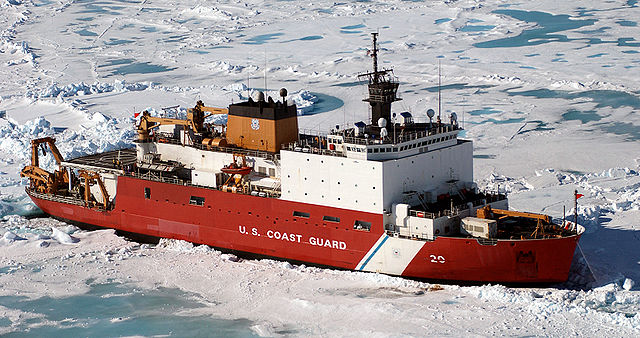Representatives of the US Coast Guard and other critical representatives of partners in the region testified on Arctic operations before a joint subcommittee hearing held on Tuesday, discussing how the Department of State is working to advance US security and economic interests in the Arctic.

"The Coast Guard is finalizing operational requirements documentation as part of the acquisition process to acquire new heavy polar icebreakers to address future needs" Vice Admiral Charles Michel testified, "Polar icebreakers are critical to supporting key national priorities laid out in the National Security Presidential Directive on Arctic Region policy and the National Strategy for the Arctic Region".
The Vice Admiral recalled the key strategic objectives of the US Coast Guard toward the Arctic, a number of initiatives that are planned to be in place by the year 2025 and are aimed to improve awareness, modernize governance, and broaden relationships. Whitin the speech, he highlighted five that are already in progress:
- Broaden Arctic Shield Operations
- Establish an Arctic Coast Guard Forum
- Establish a Center for Arctic Study and Policy
- Promote Waterways Management
- Engagement with Russia
"Operating in ice-impacted waters is challenging, requiring specialized infrastructure and equipment, plus well-trained personnel, to achieve successful outcomes. The Coast Guard will continue to tailor operations and prioritize future collaborative efforts to match risk trends, maximize stewardship of resources, and assess out-year needs to ensure it can serve the nation’s interest in the Arctic" the Vice Admiral concluded, "This strategy is consistent with our Service’s approach to performing its maritime safety, security, and stewardship missions. While there are many challenges, the changing ice conditions in the Arctic Ocean also present unique opportunities. We look forward to working with the Congress to address how the Coast Guard can continue to support our national Arctic objectives, protect its fragile environment, and remain Semper Paratus–Always Ready–in this emerging frontier".
During the hearing, also Admiral Robert Papp, Jr., U.S. Special Representative for the Arctic U.S. Department of State, testified, focusing this time on US-Russia relations in the Arctic. Despite the difficult time in the US-Russia relations, mostly due to the Ukrainian crisis, cooperation on key Arctic themes will continue.
"It is important to note from the outset that the United States and the other Arctic States are pursuing our mutual interests in a safe, stable, and prosperous Arctic region during a difficult time in our relationship with Russia. Russia’s attempted annexation of Crimea, its aggression in Ukraine, and its efforts to intimidate its neighbors are an affront to the rules-based international system and put at risk the peace that we and our allies have worked so hard to achieve in Europe. The international community’s disagreements with Russia caused by Moscow’s actions have complicated our efforts in the Arctic". Admirall Papp continued: "Fortunately,we have worked with Russia on Arctic issues during past political crises and are maintaining activities related to protecting the Arctic environment, ensuring maritime safety, including search and rescue, and law enforcement. We also continue to work with Russia in multilateral fora, including under the auspices of the Arctic Council, and our allies are following similar policies. We cannot and will not ignore Russian aggression, even as our Arctic cooperation continues. The U.S. is in lockstep with the E.U. and Norway on sanctions that target, among other things, Russian’s ability to develop resources in its Arctic waters. At the same time, we continue to work with Russia and all our Arctic partners on global issues such as those in the Arctic where we share common interests."
The full text of Vice Admiral Charles Michel's testimony is available here.
The full text of Admiral Robert Papp's testimony is available here.
